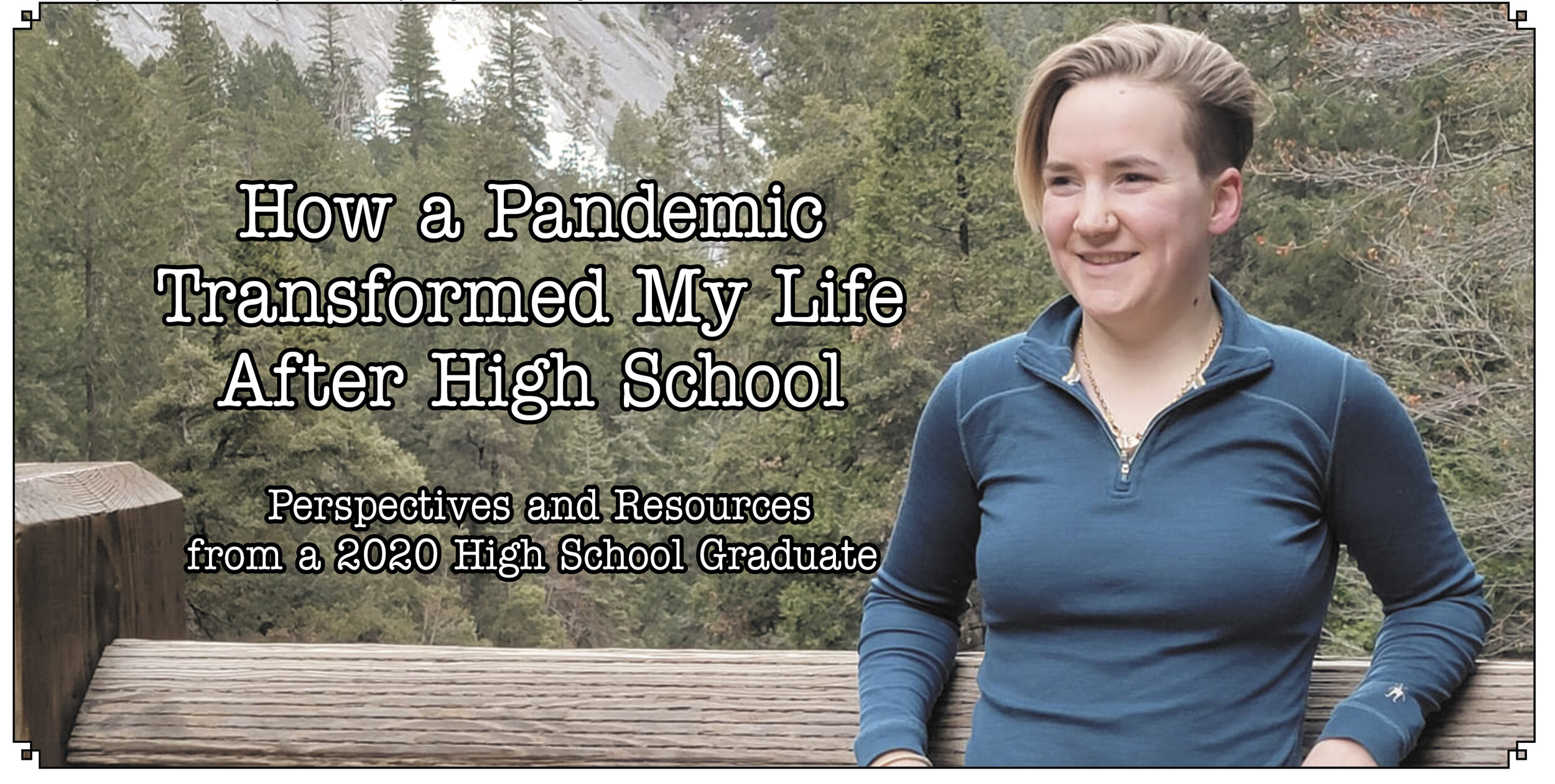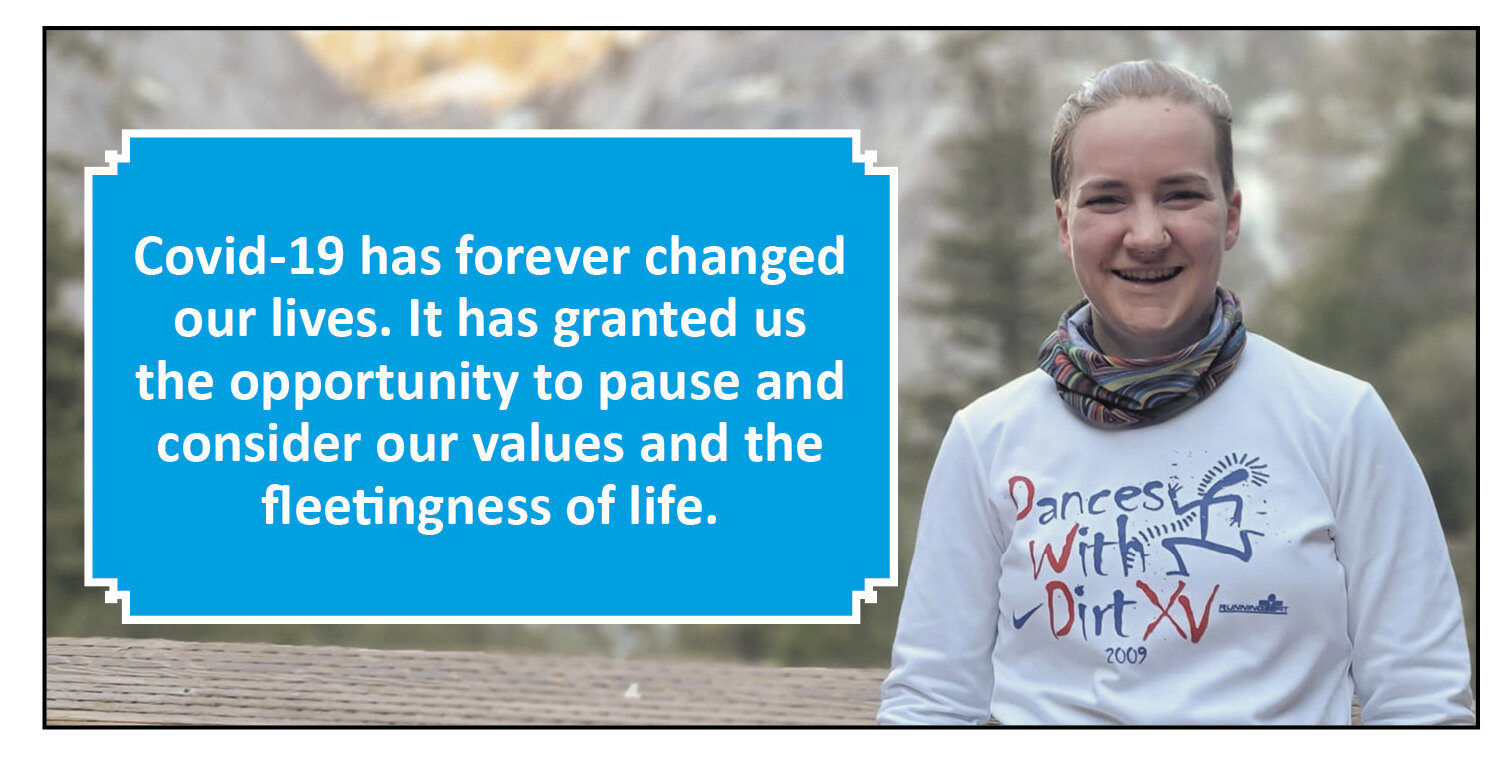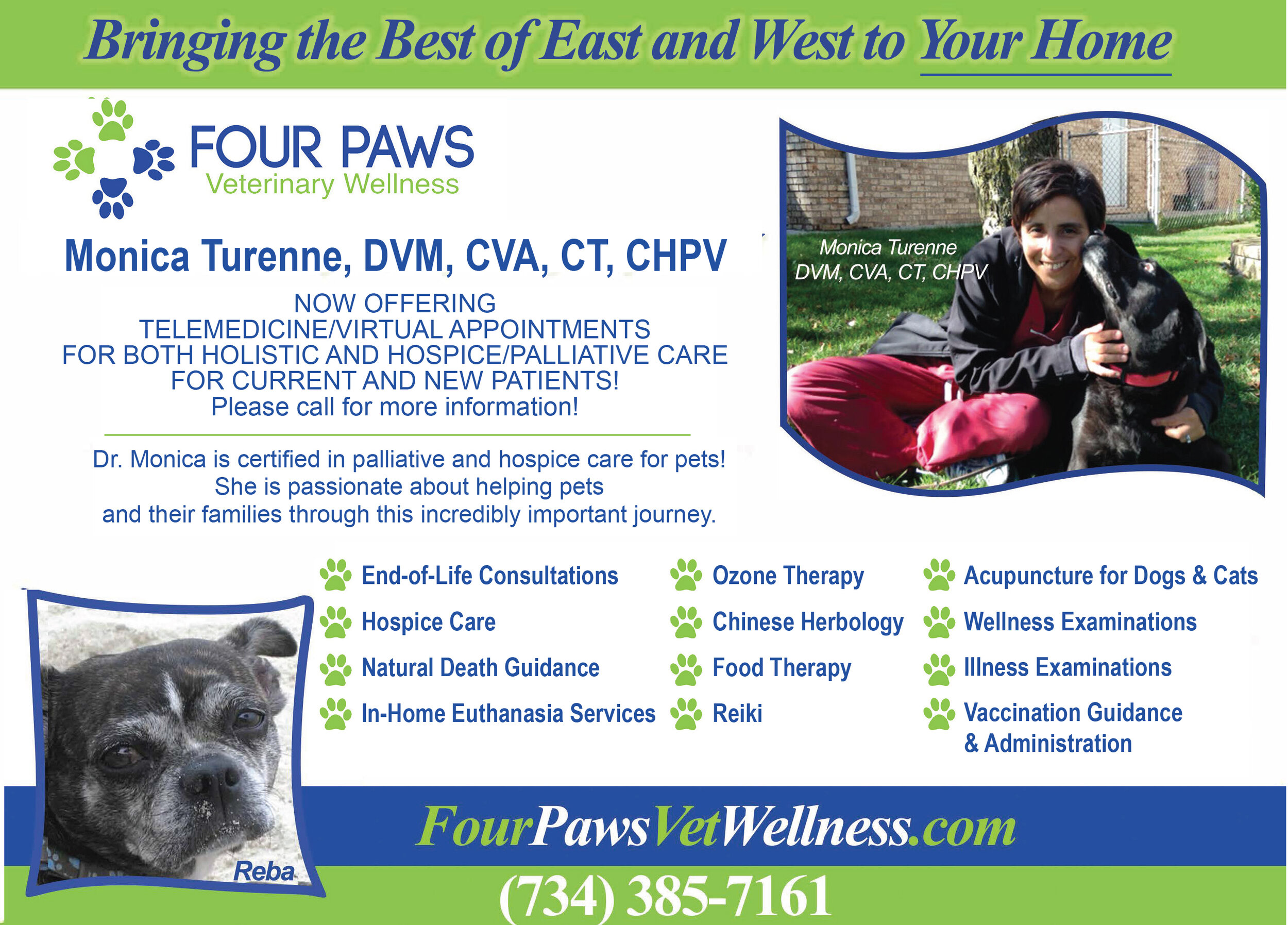By Ellie Theriot
It was 11:46 p.m. on July 31, 2020 and I had just made the biggest decision of my life. I had deferred my admission to University of Michigan’s School of Music. The decision process took less than 24 hours. Little did I know how much it would truly affect my future.
For the past eight years, music has been my life. As I progressed through high school, I began feeling pressured to say yes to opportunities because I felt like I needed to—for college applications, for my future career as a professional musician, and even as someone that couldn’t let my teachers (who had invested so much into my musical development) down. This pressure came from what I call the “Ann Arbor Excellence Phenomenon” (A2EP) – a force that values external accomplishments more than happiness and well-being.
The A2EP is that devious little voice whispering, “If you’re not the best at something, you’re a failure. If you’re not pursuing your talents with the intent of becoming a professional, you’re wasting your time. If you aren’t attending the best school you could possibly attend, you won’t get a good job. If you don’t get into the University of Michigan, you’re not smart enough.” This voice sows doubt, disappointment, and despair as it travels from one student to the next. It furtively comes out of the mouths of competitive peers, well-intentioned and well-educated but nosey parents, and from the ubiquitous presence of the University and all things “Michigan.” It is virtually inescapable.
When junior year rolled around, I fell victim to the A2EP. So did my friends. My mental health spiraled in tandem with my peers’. It was a constant battle between sleep, homework, and extracurriculars—sleep losing heroically. The worst part? It’s not just the juniors and seniors in high school suffering from A2EP. It’s sophomores, freshmen, and even middle schoolers that are struggling. Society’s traditional education system can be ruthless as it singles out potential and latches on until burn out (or worse) results. Specialization has become synonymous with success. All of that pressure is creating a generation of kids more anxious and depressed than ever before.
By my senior year, the wave of academic and musical enthusiasm had fizzled out and I was essentially running on fumes. I felt like I embodied the epitome of “burn-out.” Yet, college applications and auditions never allowed me to relax. My mental health suffered. My physical injuries got worse. My journal from January 1, 2020 reads: “I know that this is not who I truly am because when I envision my best life, I am the exact opposite of what I am now. I am killing it with music, psychology, philosophy, and outdoor programs. I am happy and sleeping and eating and working out. I am not anxious or depressed and I am thrilled to be alive.” Trying to imagine myself at college during that time was virtually incomprehensible, yet I wanted to go in order to “[kill] it with music, psychology, philosophy, and outdoor programs.” In college. So, Ellie, where’s the disconnect? The answer? Timing.
I was first introduced to the idea of the social clock in my AP Psychology class my senior year. It seemed like an extended metaphor for how the structure of the education system worked. We move through the grades, meeting benchmarks and the knowledge that propels us into the next grade, next school, next job or career. The social clock is this societal nag that can pressure us to follow paths well-trodden at the expense of our current health and well-being. Just because something is conventional doesn’t mean it is what you, as a unique individual, needs. Covid-19 disrupted all of the “clocks” –– social and otherwise. When life was in full swing, there was simply no time to reflect and consider other paths because school, applications, and music had me staring at the ground to avoid falling.
I needed time off from the academic and competitive environment that caused so much stress. One year later, I feel ready—more than ready to go back to school. I can’t wait to meet and discuss and collaborate with vibrant, passionate, people. I can’t wait to pursue my passions and let them guide me forward.
On the last day of July, I finally came to my senses and realized that another year of playing music alone, staring at a computer screen, and constantly fearing for my safety at college was not how I wanted to spend my time. I knew that if I stopped playing horn to let my injuries heal, I might never pick it up again, but with my horn professor’s blessing to take nine months off and my piano teacher’s words “You’ll regret it if you don’t defer,” ringing in my ears, I decided to make the most out of this unprecedented year. I shared some highlights and insights in the hopes that my experience might serve as inspiration for an unconventional next chapter for others on the brink of big college decisions.
In August I did the obvious—I started a bread baking business. Well…not really, but the quarantine bread baking contagion was spreading and I soon got hooked. Next, I signed up to be a “WWOOFer” joining the community of folks looking for World Wide Opportunities on Organic Farms (wwoof.net). I soon found myself at Strawbale Studio (strawbalestudio.org) in Oxford, MI and spent September learning about natural building and living out of my car (and tent). Some highlights include: making horse manure plaster, harvesting the results of our shiitake mushroom inoculation, building (most of) a stone bench, painting a house, fixing a leaky thatched roof, picking up guitar, chatting by the fireside deep into the night, learning how to work alongside people very different from me, and growing more in that month than in the past year. I learned that connection—to nature, to humans, to my body, and to the universe, is really at the crux of it all. On September 25th I wrote, “I am doing so well! I need to be grounded in order to take flight.” That epiphany should’ve been no surprise—we come from nature, and we are wired to be immersed and invested in the beautiful process of survival. It was bittersweet when I finally drove home.
Read related article: A Journey Through the Stages of Personal Power
During October I gardened, worked at Human Electric Hybrids (the new electric bike store in Kerrytown) entering data, babysat, and tutored. I discovered Stoicism (check out The Practical Stoic podcast with Simon J. E. Drew!), embraced minimalism (got rid of half of my belongings) and #vanlife (travel anywhere, anytime, and be completely independent, paying only for gas and food!). An appointment with Diane Babalas at Gateway Chiropractic inspired me to become a traveling chiropractor, living out of my theoretical van, and exploring the world.
In November I got a job at Zingerman’s in the Mistakes department at the mail order warehouse, worked there through the winter holidays, continued tutoring and babysitting, and began dreaming of traveling out west. A friend introduced me to Workaway (workaway.info)—a program like WWOOF where you can go stay with hosts, work for them, and in exchange receive accommodations, food, and an incredible life experience. So, for those of you looking for an adventure and to meet some new folks, check out WWOOFing and Workaway. Could lead you to some very interesting places.
Throughout the many jobs and experiences, I did my very best to refute the stigma that those who take a gap year between high school and college fall off the wagon—but taking a gap year is just one of many paths open to the high school graduate.
Another obvious path is college. I think the most important thing to remember when choosing any path, but especially college, is to know your why. Automatically assuming college is the next step can be a trap. Consider college’s traditional role in the “system”—the common justification is “I’m doing [fill in the blank] so I can get a job that will support me and my family....” However, this narrative is based on a future that isn’t guaranteed. Instead, I implore you to consider college in relation to knowing your why—the why that gives you purpose in the present and throughout the rest of your life. Your why ultimately relates to your higher purpose and overall well-being. There’s a quote by Stoic philosopher, Marcus Aurelius, which states “You could leave life right now. Let that determine what you do, and say, and think.” Covid-19 has clearly demonstrated how fragile life is and how important it is to understand your carefully chosen actions.
If you’re in a place where college makes sense for you, great! I plan to attend school, too. Wherever you’re at, it’s important to justify any path you choose for both your present and future well-being’s sake. I planned to go to music school because I owed it to my past self to see how far I could take horn. I felt like I was letting myself and others down if I didn’t pursue horn to my greatest potential. That reasoning failed to meet present Ellie’s needs. The timing just wasn’t right.
I want to go to college because I want to become a chiropractor—a dream I discovered in the middle of my gap year. If I hadn’t given myself the time and space to explore other paths, who knows if chiropractic school would’ve ever entered my list of future dreams.
Thinking about these big life decisions can be stressful. Believe me, I know. To keep the stress at a minimum, here is some advice and perspectives that have helped me along the way.
Know that whatever you choose to do after high school (and beyond), there will always be an opportunity cost.
Choices are not permanent. Just because I chose music in high school obviously did not mean that I continued to choose it.
You are in control to choose and to choose again and again and again—keep trying until it works.
“Amor Fati” = love your fate. Every experience is valuable, it’s up to you to find the hidden lessons.
In addition to knowing your why, another helpful framework for me was making life choices that would make my life story one worth retelling.
For those of you that are already considering future careers, I will offer this. Most of the jobs you will have in your lifetime likely haven’t been created yet. The future is changing exponentially and because of that predicting what life will look like in 5, 10, or 20 years is a whole lot of guesswork. It’s not worth worrying about.
All of this comes back to the pandemic. Covid-19, thank you. Thank you for making online college just unappealing enough that I decided to defer. Thank you for cancelling my rehearsals and recitals so my other interests could grab some of the limelight. And thank you for reminding us all of how fragile life is and that I, for one, can help. Becoming a chiropractor will be a small contribution I make in this world that is hurting.
If/when you do decide to apply to college, here are some things that helped me during the process.
Apply to many types of schools, even if you think you know what you're looking for. Your mind can change quickly.
Know that any school you go to will be an extraordinary valuable life experience even if—especially if—it's not what you expect.
If a school is not the right fit, you can always transfer or take time off to work or travel. You're not stuck.
Utilize recent alumni and current students as much as you can. They are great resources and can provide much more insight into what the experience will actually be like.
And for all you parents—hands off! Let your kid lead. Let them discover how to manage their time and write with their own voice. It’s their future, letting them take charge of it is the best thing you can do (my mom and I both agree on that one in case you were wondering).
There’s so much to consider when thinking about life after high school. There’s so much to look forward to and be excited about. As the transition to adulthood begins and more freedom is granted, remember that the options are many. Covid-19 has forever changed our lives. It has granted us the opportunity to pause and consider our values and the fleetingness of life. It’s taught us to take nothing for granted—not tomorrow, not any future we may envision. It’s up to us to make conscious choices knowing that the years following high school are the prime years of life and we cannot take a single one for granted.
Ellie Theriot can be reached at: ellietheriot@gmail.com.







































































































































































































Raising a child with special needs comes with unique challenges, but it also brings moments of incredible growth, resilience, and joy. The proper support and strategies can make all the difference—whether it's navigating therapies, advocating at school, or creating a home environment where a child feels empowered. From practical tips to expert insights, community groups and carefully curated summer camps and classes, special needs children and their families will not just get by but will truly thrive. Every child deserves the chance to shine, and every family deserves the tools to help them do it.